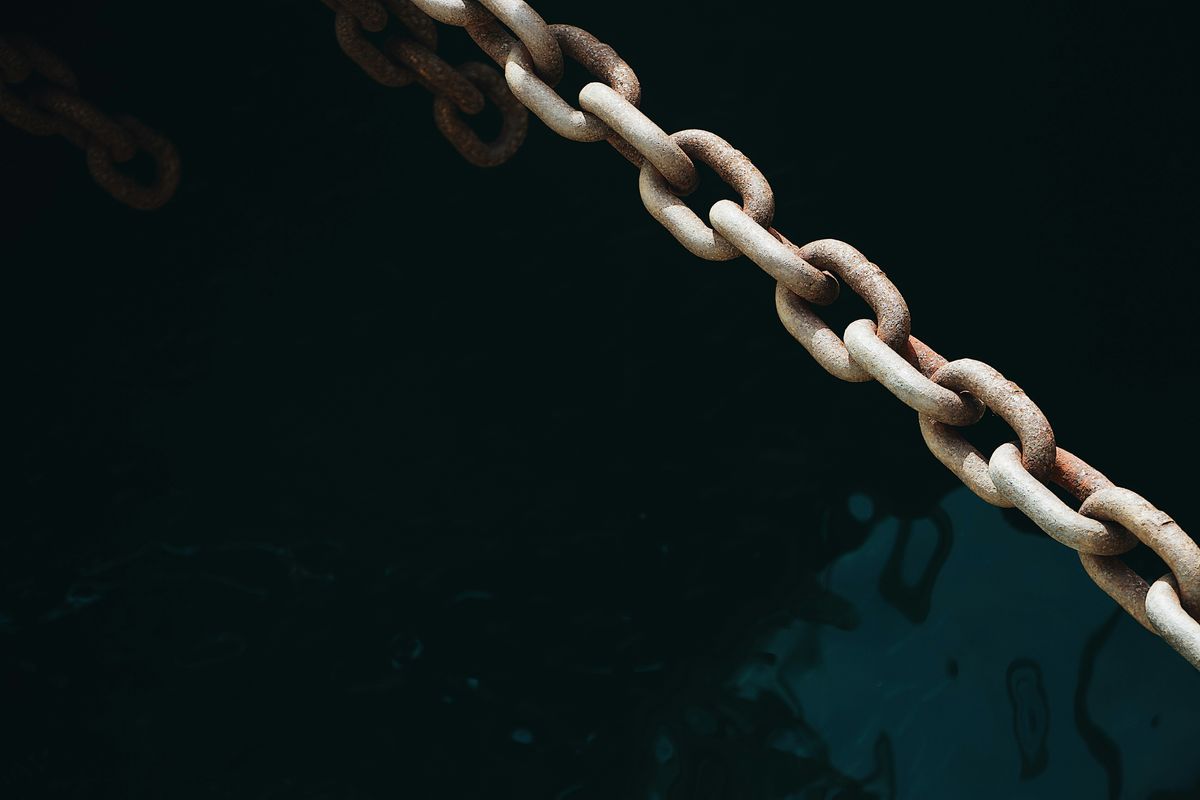Effective debt collection is crucial for maintaining the financial integrity of businesses, especially in the logistics industry where supply chains are complex. Logistics Collection Agencies offer tailored solutions to address the challenges of industrial supply debt collection. This article explores key strategies and solutions for managing supply chain integrity through efficient debt collection practices.
Key Takeaways
- Timeliness is crucial in debt recovery for the logistics industry.
- Collaboration with debt collection agencies can enhance financial health and operational efficiency.
- Choose debt collection agencies that prioritize ethical practices and industry understanding.
- Consider additional services offered by debt collection agencies for comprehensive support.
- Maintaining transparency and communication throughout the debt recovery process is essential for long-term financial health.
Effective Debt Recovery Strategies
Phase One
Within the first 24 hours of initiating Phase One, a multi-pronged approach is deployed to signal the seriousness of the debt recovery process. The debtor receives the initial communication, and a comprehensive investigation is launched to gather essential financial and contact information.
- First, a series of letters is dispatched to the debtor, marking the commencement of the formal collection process.
- Concurrently, skip-tracing and investigative measures are undertaken to ensure accurate debtor profiles.
- Persistent contact attempts via phone, email, and other channels are made, aiming for an early resolution.
The goal is to establish a consistent and assertive presence, reinforcing the urgency of settling the outstanding debt.
If these efforts do not yield a resolution, the strategy escalates to Phase Two, involving legal leverage through affiliated attorneys. The emphasis on efficient collection efforts is crucial, as it sets the tone for the entire recovery operation and can significantly impact the overall success rate.
Phase Two
Upon escalation to Phase Two, the focus shifts to leveraging legal expertise. A local attorney within our network takes over, drafting a series of demand letters and initiating direct contact with the debtor. This phase intensifies the pressure on the debtor to settle the outstanding debt, signaling a serious intent to recover the funds.
The attorney’s involvement adds a layer of formality and urgency, often serving as a catalyst for payment.
If these efforts do not yield results, a strategic decision is made. The options are clear-cut:
- Continue with persistent collection activities.
- Recommend closure of the case if recovery is unlikely.
- Proceed with litigation, subject to the client’s approval and upfront legal costs.
The choice is informed by a thorough investigation of the debtor’s assets and the facts of the case, ensuring a cost-effective approach to debt recovery.
Phase Three
In the final phase of debt recovery, decisive action is taken based on the thorough investigation of the debtor’s financial situation. If the likelihood of recovery is low, the case may be recommended for closure, ensuring no further costs are incurred. Conversely, if litigation is deemed viable, the creditor faces a critical decision point.
Litigation involves upfront legal costs, which typically range from $600 to $700. These costs cover court fees and filing expenses, initiating a lawsuit to recover the full amount owed, including legal costs. Should litigation efforts not result in recovery, the case is closed without additional charges to the creditor.
The choice between continuing standard collection activities or proceeding with legal action hinges on a cost-benefit analysis and the creditor’s appetite for risk.
The fee structure for debt collection services is contingent on the age and size of the account, as well as the number of claims. Here’s a simplified breakdown:
- Accounts under 1 year: 30% (1-9 claims) or 27% (10+ claims)
- Accounts over 1 year: 40% (1-9 claims) or 35% (10+ claims)
- Accounts under $1000: 50% regardless of claim count
- Accounts requiring attorney involvement: 50% across the board
This phase underscores the importance of a strategic approach to debt recovery, balancing the potential for financial restitution against the costs and risks of legal proceedings.
Logistics Industry Debt Collection Solutions
Timeliness in Debt Recovery
In the fast-paced logistics industry, time is of the essence. Early intervention and account monitoring are essential for successful debt recovery. The Recovery System emphasizes proactive strategies and legal action if needed to optimize collection rates and financial health.
The sooner you act, the higher the likelihood of full recovery.
Understanding the debtor’s financial situation quickly can lead to more effective negotiations and settlement options. Here’s a snapshot of our phased approach:
- Phase One: Immediate action within 24 hours of account placement.
- Phase Two: Escalation to affiliated attorneys if initial attempts fail.
- Phase Three: Litigation recommendation based on thorough investigation.
Remember, delaying action can significantly decrease the chances of debt recovery. Our structured process ensures that no time is wasted and every opportunity for collection is maximized.
Industry-specific Expertise
In the logistics industry, debt recovery requires a nuanced approach tailored to the sector’s unique challenges. Our team’s deep understanding of these intricacies ensures that strategies are not just generic, but customized to meet the specific needs of our clients.
- Profound expertise in contractual disputes and overdue industrial bills
- Precision in managing complex recovery scenarios
- Utilization of industry-specific debt collection software
Optimize debt recovery by analyzing industry nuances, assessing financial health, utilizing third-party agencies, and tailoring strategies.
Agencies equipped with the right technology and understanding of the logistics sector can significantly enhance the effectiveness of debt recovery efforts. It’s not just about persistence; it’s about smart, informed action.
Collaborative Approach
In the realm of supply chain integrity, a collaborative approach is paramount. Transparent communication and adherence to ethical standards are the cornerstones of successful partnerships. By fostering a technology-based trust, we enable the seamless sharing of information and resources, crucial for effective debt recovery.
Our commitment extends beyond mere debt collection; we aim to strengthen the financial backbone of logistics businesses.
Understanding that each partner in the supply chain has unique needs, we tailor our strategies to align with these requirements. This ensures not only the recovery of debts but also the preservation of vital business relationships. Our approach is not just about being firm; it’s about being fair and respectful, always within the bounds of legal guidelines.
Here’s a quick overview of our collaborative recovery process:
- Initiate contact and establish open lines of communication.
- Engage in professional negotiation, balancing firmness with ethical practices.
- Recommend further action based on a thorough investigation of the case.
By prioritizing customer service and industry-specific expertise, we seek to be a partner, not just a collector.
Partnering with Debt Collection Agencies
Ethical Practices
In the realm of supply chain integrity, ethical practices are not just a moral imperative but a strategic advantage. Flexible payment options not only demonstrate compassion but also improve debt settlement rates. Efficient internal processes are the backbone of ethical debt recovery, ensuring that actions are consistent and fair.
Collaboration with reputable agencies can significantly aid manufacturers in maintaining ethical standards while recovering debts. It is crucial to partner with agencies that understand the delicate balance between firmness and fairness, and that operate within the legal framework.
Ethical debt collection is not an oxymoron; it is a reflection of a company’s values and commitment to responsible business practices.
Selecting a debt collection agency with a strong ethical code is essential. Agencies should be evaluated on their commitment to sustainability, fair labor practices, and avoidance of conflict resources. This alignment ensures that the entire supply chain upholds the values that consumers and businesses increasingly demand.
Industry Understanding
In the realm of debt collection, industry understanding is pivotal. Knowledge of regulatory requirements and industry benchmarks sets the stage for effective recovery actions. Stephen Brandt, with his extensive experience, underscores the significance of grasping regulatory goals and compliance risks.
- Familiarity with industry-specific regulations
- Awareness of ethical sourcing and carbon footprint reduction
- Utilization of advanced analytics and AI for ethical compliance
Leveraging technology like EDI, IoT, and blockchain ensures the integrity of supply chain information and aids in maintaining the provenance of goods.
Understanding the nuances of the logistics industry is not just about legal compliance; it’s about aligning with the ethical pulse of supply chain operations. This alignment is crucial for maintaining trust and ensuring a collaborative approach to debt recovery.
Additional Services
Beyond the core offerings, debt collection agencies often provide a suite of additional services that can significantly enhance the recovery process. These services may include Accounts Receivable Management, which ensures that debts are monitored and acted upon promptly, and Advanced Dispute Resolution, which addresses and resolves conflicts efficiently.
Additional services often encompass:
- Asset Location to uncover debtor assets for potential recovery
- Legal Demand Letters and Local Attorney partnerships for escalated legal action
- Skip Tracing to track down elusive debtors
- Judgment Enforcement to uphold legal decisions
It is essential to understand that these services are designed to complement the primary debt collection efforts, providing a comprehensive approach to debt recovery.
When selecting a debt collection agency, it’s crucial to consider the range of services offered. Agencies that go beyond the standard collection practices can offer a more robust solution to maintaining supply chain integrity. Remember, the goal is not just to recover debts but to do so while preserving business relationships and upholding ethical standards.
Struggling with unpaid invoices can hinder your business’s cash flow and growth. Partner with our expert debt collection agency to turn your receivables into revenue efficiently. Our specialized team uses data-driven strategies and a network of seasoned lawyers to ensure a high recovery rate, even for international debts. Don’t let outstanding debts slow you down. Visit our website to learn more about our services and how we can support your business in achieving better financial stability. Take the first step towards recovering your funds today!
Conclusion
In conclusion, effective debt collection is crucial for maintaining the financial integrity of businesses, especially in the logistics industry where timeliness is paramount. Logistics Collection Agencies offers a comprehensive approach to industrial supply debt collection, emphasizing transparency, ethical practices, and tailored solutions. By partnering with us, businesses can enhance their financial health, operational efficiency, and overall success. Our team of experienced professionals is dedicated to providing reliable and effective debt recovery services, ensuring a strong foundation for logistics businesses to thrive. Contact us today to experience our risk-free collection services and take control of your receivables management.
Frequently Asked Questions
What are the recommendations in Phase Three of the debt recovery process?
In Phase Three, the recommendations can either be to close the case if recovery is deemed unlikely without any cost to you, or to proceed with litigation where you may need to pay upfront legal costs. The collection rates vary based on the age and amount of the accounts submitted.
What is the 3 phase Recovery System for recovering company funds?
The 3 phase Recovery System involves sending letters to debtors, skip-tracing, contact attempts, and possible legal action if initial attempts fail. It progresses through Phase One, Phase Two, and Phase Three based on the outcomes.
Why is effective debt collection important in the logistics industry?
Effective debt collection is crucial in the logistics industry to maintain financial integrity, ensure operational efficiency, and address the challenges posed by intricate supply chains.
How does timeliness play a role in industrial supply debt collection within the logistics industry?
Timeliness is essential in debt collection to prevent disruptions, resource strains, and inefficiencies in operations. A swift and efficient approach is necessary to resolve outstanding debts promptly.
What is emphasized in the collaborative approach to debt collection?
The collaborative approach focuses on transparent communication, ethical standards, and long-term financial health. It aims to not only recover debts but also enhance operational efficiency and support business growth.
What additional services should a debt collection agency offer besides debt recovery?
A debt collection agency should provide additional services like proactive debt management, legal support, credit checks, and pre-collection measures. These services can improve accounts receivable management and boost the bottom line of businesses.





